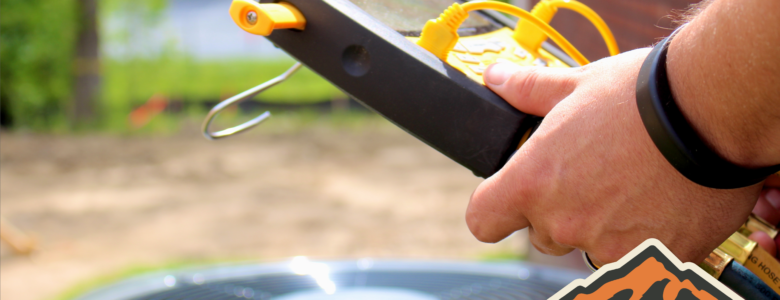The sweltering summer months are here, and with temperatures rising above 100 degrees, many of our residents in Eagle Mountain have had frustrating experiences with air conditioning problems.
We hear a number of complaints and see social media posts about air conditioners not keeping up, or not working at all. Even units in new homes are not exempt from problems. If you are replacing or upgrading your HVAC system, verify that the service contractor has obtained a permit, so it can be inspected to verify that safe and proper installation.
Air conditioners are designed to cool indoor spaces to a comfortable temperature range, typically between 68 and 78 degrees Fahrenheit, depending on preference and conditions. Units are designed to cool a home by 15-20 degrees. When temperatures soar above 100 degrees, an air conditioner might only be able to cool a home to 80 degrees. Units can struggle to maintain lower temperatures indoors, and they may run longer or cycle more frequently to achieve the desired cooling. Too often we put too much of a load on the system, and the system cannot manage the strain.
The right size unit is important in the ability to cool your home. An oversized unit can lead to poor energy use and uneven cooling, while a unit that is too small will struggle to cool the space.
If you have a finished basement, take that into consideration. Many home builders only calculate the space finished when the home was complete, and not future space. In a typical home, the upstairs is usually about 10 degrees warmer than the basement due to the heat rising. If you are running your home on one unit, try closing your basement registers halfway or completely in some cases, to assist your unit.
Regular maintaining and troubleshooting for your air conditioner can help ensure it runs efficiently. Here are some DIY tips for maintenance and what to do if your coils freeze:
Maintenance Tips:
- Regular Cleaning:
- Filters: Replace or clean air filters every 1-3 months, especially during heavy use periods. In Eagle Mountain, with our wind, dust, and new construction, changing the filter more often can be your easiest tool to help prevent future issues.
- Coils: Clean evaporator and condenser coils annually to maintain airflow and efficiency.
- Clear Debris:
- Ensure outdoor condenser unit is clear of debris, leaves, and dirt. Trim foliage around the unit to maintain proper airflow.
- Check Refrigerant Levels:
- Low refrigerant levels can indicate a leak and should be checked and refilled by a professional.
- Inspect Ductwork:
- Check ducts for leaks or blockages. Seal leaks with listed duct tape or mastic sealant.
- Thermostat Check:
- Calibrate thermostat settings and consider upgrading to a programmable thermostat for better efficiency.
Troubleshooting Tips:
- Poor Cooling:
- Check air filters and replace if dirty.
- Ensure return vents and registers are open and unobstructed.
- Verify thermostat settings are correct.
- No Air Flow:
- Inspect and replace dirty air filters.
- Check for blocked or closed vents.
- Strange Noises:
- Rattling or squealing could indicate loose parts or belts. Tighten or replace as needed.
- Coils Freeze:
- Symptoms: Reduced airflow, warm air from vents, ice buildup on coils.
- Causes: Restricted airflow, dirty coils, low refrigerant levels.
What to Do if Your Coils Freeze:
- Turn Off the AC:
- Immediately turn off the air conditioner to prevent further damage.
- Check Airflow:
- Inspect air filters and vents for blockages. Replace dirty filters and clear any obstructions.
- Allow Thawing:
- Let the coils thaw completely before attempting to restart the unit. This may take several hours.
- Inspect and Clean:
- Once thawed, inspect the coils for dirt or debris. Clean them gently with a soft brush or cloth.
- Professional Inspection:
- If the problem persists after cleaning and restarting, or if you suspect low refrigerant levels, contact a professional HVAC technician for inspection and repair.
Regular maintenance and prompt attention to issues like frozen coils can extend the life of your air conditioner and keep it running efficiently during hot weather. YouTube has some useful information to help walk you through and troubleshoot. Take some time to educate yourself a little preventative maintenance and it will pay off, ensuring that your home stays comfortable and cool all summer long.


